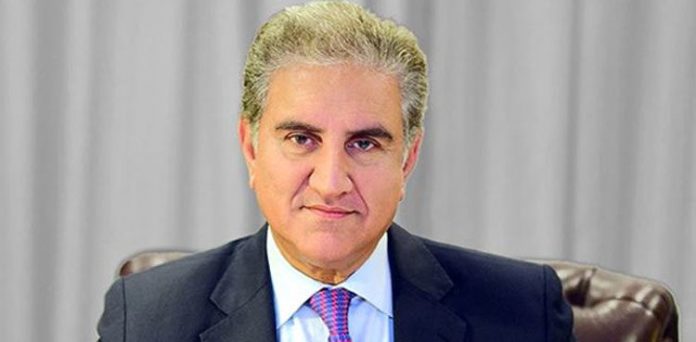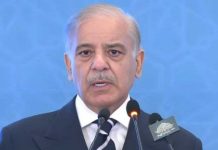DUSHANBE: Foreign Minister Shah Mahmood Qureshi on Tuesday said Pakistan would continue to support a peaceful and stable Afghanistan through a political instead of a military solution to the conflict. In his address at the 9th Heart of Asia-Istanbul Process (HoA-IP) Ministerial Conference in the Tajik capital, the foreign minister called for a united approach by regional countries to help restore prosperity of the Afghan people. Qureshi termed the Heart of Asia Process an important platform to bring together partners and supporting countries who wanted to achieve the common goals of peace, stability and prosperity in Afghanistan. For Pakistan, he said, Afghanistan was an important neighbor and brotherly country with strong historical ties. "Pakistan desires peace and development in Afghanistan more than any other nation," he said. He recalled the historic development of signing of the US-Taliban peace agreement in February 2020 and the positive role played by Pakistan in this regard. The progress made so far has certainly provided a historic opportunity for the Afghan leadership to find a "negotiated, inclusive, broad-based and comprehensive solution" to the problem. Qureshi said as part of the efforts to engage extensively with Afghan leaders, Pakistan consistently called for a constructive dialogue and engagement to achieve positive results. "Our message to all is to carry forward this process through good faith, solid and fruitful dialogue," he said. The foreign minister said besides the historic opportunity, several challenges for the Afghan nation lied ahead and warned of the "spoilers inside and outside Afghanistan”. He expressed deep concern over the growing incidents of violence across Afghanistan, fearing that ISIS or al-Qaeda could gain a foothold in the country. He said destruction of infrastructure and the lack of economic opportunities could jeopardize the benefits of the Afghan peace process. Qureshi emphasized on taking forward and strengthening the Doha peace process and called upon the international community to secure investment in Afghanistan to achieve the goals of prosperity. The minister proposed a number of steps towards Afghan peace including an immediate ceasefire to reduce violence, financial assistance by international community for post-conflict development, long-term planning for Afghanistan's economic development and creating a conducive environment for Afghan refugees to return home with dignity. The foreign minister mentioned that besides facilitating the peace process, Pakistan was providing all possible assistance to Afghanistan and had already pledged one billion dollars for its development and reconstruction. He said Pakistan had spent about US500 million on infrastructure and capacity building projects in Afghanistan and also introduced a new visa regime to facilitate travelers. Despite the pandemic, he said, Pakistan opened five border crossings to facilitate travelers and trade from Afghanistan. Pakistan has also activated the Gwadar port for Afghan transit trade, he added. Qureshi said Pakistan was keen to move forward on regional connectivity and energy projects such as CASA-1000 and TAPI and mentioned that the Trans-Afghan railway project connecting Uzbekistan-Afghanistan-Pakistan was being pursued to promote trade, tourism and people-to-people exchanges. He said China Pakistan Economic Corridor (CPEC) as the flagship project of Belt and Road Initiative (BRI) was open with beneficial prospects for Afghanistan. The foreign minister said under the Heart of Asia-Istanbul Process, Pakistan was a participant in all CBMs and a lead country in Disaster Management & Environmental Protection and Agricultural Development. He recalled that Pakistan hosted first virtual meeting of Regional Technical Group (RTG) of Agriculture Development CBM on 05 March 2021 and the areas of cooperation agreed in the meeting included plant quarantine system, advancement of seed industry and value crop production. The 9th Heart of Asia-Istanbul Process Ministerial Conference was attended by 15 countries of the region, 16 supporting States and 12 regional and international organizations.

















